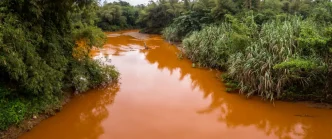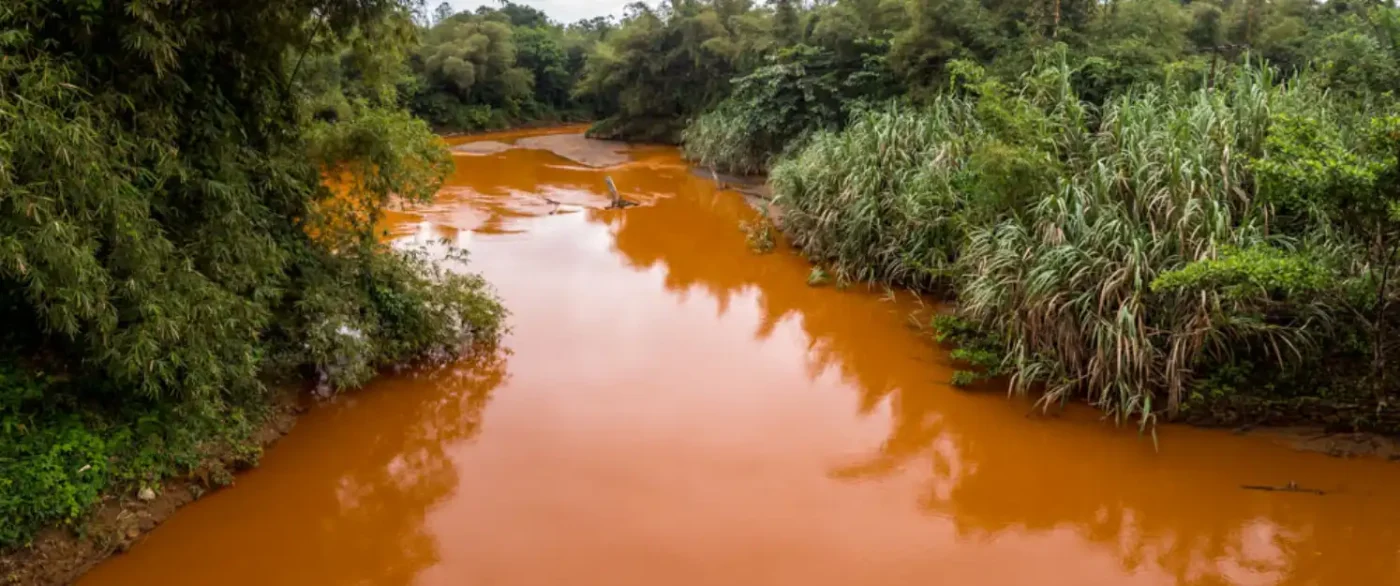In the shadow of towering smokestacks and sprawling industrial complexes, villages in Central Halmahera regency, North Maluku, are grappling with a public health crisis. Residents of Gemaf, Lelilef Sawai, and Lelilef Woebulen, located mere hundreds of meters from the PT Indonesia Weda Bay Industrial Park (IWIP), report a surge in respiratory illnesses, which they attribute to pollution from the nickel mining and processing facility. As Indonesia pushes to become a global leader in nickel production for electric vehicle batteries, the environmental and human cost in this remote region is becoming increasingly evident.
A Community Under Siege
In Gemaf village, Stesya Tania, a 23-year-old mother, navigates a daily struggle between running her small shop and caring for her four-year-old daughter, Putri, who suffers from persistent fever, cough, and shortness of breath. Diagnosed with asthma, Putri requires frequent clinic visits, a burden on the family’s modest income of around 8 million Indonesian Rupiah (US$491) per month. “The house is swept clean every morning and evening, yet there is still ash that gets into the nooks and crannies” Stesya shared during an interview earlier this year. “It even gets into the bedrooms, and that’s what makes the children sick.”
The source of this pervasive dust, residents say, is the IWIP industrial park, a massive nickel mining and processing operation located just 500 meters from Gemaf. The facility, which began operations in 2018, spans 4,027 hectares—roughly the size of 5,500 soccer fields—and includes mines, smelters, a seaport, and an airport. It is powered by at least 13 coal-fired power plants with a combined capacity of 4,160 megawatts, according to data from Global Energy Monitor. Black smoke billows from the plants’ smokestacks day and night, casting a red glow over the sky after dark, as described by 60-year-old Gemaf resident Ferse Sigoro. “We don’t feel comfortable anymore living here. It gets dusty day and night” he said.
Health Impacts on the Rise
The health toll on communities near IWIP is stark. Acute respiratory infections have become the most commonly reported illness in the region, with cases recorded at the Lelilef Puskesmas (community health center) in Central Weda district rising from 351 in 2018 to 2,745 in 2024. The proportion of sick individuals in North and Central Weda stands at 43.4% and 20.7% of the population, respectively—far exceeding the provincial average of 1.2% and the national average of 2.2%. A 2023 study by the Association of People’s Emancipation and Ecological Action (AEER), a Jakarta-based energy think tank, identified high levels of PM10 and PM2.5 fine particulates near Lelilef Woebulen, exceeding both Indonesian government and European Union standards. The study pointed to the coal-fired power plants as a primary source of this pollution.
For families like Stesya’s, the financial strain is significant. Monthly clinic bills can reach 600,000 Indonesian Rupiah (US$37), a substantial portion of their income. On a broader scale, the Center of Economic and Law Studies (CELIOS) and the Centre for Research on Energy and Clean Air (CREA) estimate that the cost of treating pollution-related illnesses in North Maluku could reach 8.5 trillion Indonesian Rupiah (US$522 million) by the end of 2025, potentially climbing to 12.3 trillion Rupiah (US$755 million) over the next decade. If current industrial growth continues without stricter emission controls, CREA warns of up to 5,000 premature deaths and an additional economic burden of 54 trillion Rupiah (US$3.3 billion) by 2030.
Nickel’s Double-Edged Sword
Indonesia’s nickel industry is a cornerstone of its economic strategy, positioning the country as a key supplier of materials for electric vehicle (EV) batteries and stainless steel. The IWIP facility, a joint venture between China’s Tsingshan Group, Zhejiang Huayou Cobalt Co. Ltd., and Zhenshi Holding Group Co. Ltd., represents a US$7.5 billion investment in this vision. Promoted as part of the global transition from fossil fuels to renewable energy, the industrial park processes nickel, a critical mineral for EV batteries. Yet, the irony is not lost on locals: the facility relies heavily on coal power, undermining the very environmental goals it claims to support.
The proximity of residential areas to industrial operations exacerbates the issue. Only a thin concrete wall separates Gemaf and neighboring villages from IWIP’s coal storage and power plants. Trucks and heavy machinery rumble through village roads, kicking up dust that settles on homes and infiltrates daily life. Environmental governance, critics argue, has failed to keep pace with the rapid expansion of such facilities. Attempts to reach IWIP for comment on these concerns were unsuccessful, as the company did not respond to requests for an interview in April.
Calls for Reform and Accountability
Amid mounting evidence of environmental and health impacts, experts and advocates are urging the Indonesian government to act. Bhima Yudhistira, executive director of CELIOS, has called for a moratorium on new nickel industry permits until authorities can address gaps in environmental oversight for existing operations. He also advocates revising Presidential Regulation No. 112/2022, which currently facilitates the construction of new captive coal power plants. “The government must prioritize environmental governance over unchecked industrial growth” Bhima emphasized.
Timotius Rafael, a researcher at AEER, echoed this sentiment, pressing for a comprehensive nickel decarbonization roadmap. Such a policy, he argues, would compel the industry to align production with renewable energy availability and control mineral extraction rates. “Don’t allow the ambitious target for nickel downstreaming to boost the economy to leave wounds and bad impressions” Timotius warned. “Decarbonization must be done by stopping coal power plants and switching to renewable energy, so the damage in North Maluku won’t get worse.”
Local voices add urgency to these demands. Ferse Sigoro expressed concern over reports of an additional coal power plant under construction at IWIP, fearing further deterioration of air quality. “The air is already polluted now” he said. “What will happen if they build more here?” Stesya, meanwhile, hopes for government intervention to restore the environment, starting with cleaner air for her children and community.
Balancing Economic Gains and Human Costs
The situation in Central Halmahera reflects a broader tension in Indonesia’s development trajectory. The nickel industry has brought jobs and investment to North Maluku, employing locals like Stesya’s husband, a member of the Sawai tribe with deep roots in Gemaf. Yet, the benefits come at a steep price for communities living in the shadow of industrial progress. With limited alternatives, families feel trapped between economic necessity and health risks. “The least we can do is not let our children spend a long time outside because everyone is getting sick” Stesya noted. “We’re afraid that the children will continue being ill.”
Indonesia’s push to dominate the global nickel market has drawn international attention, with foreign investment pouring into projects like IWIP. However, reports of mass deforestation and environmental degradation linked to nickel mining in regions like North Maluku and Raja Ampat have raised alarms among conservationists and human rights advocates. If unaddressed, the health crisis in Central Halmahera could become a flashpoint for broader debates about sustainable development and corporate accountability in resource-rich nations.
Looking Ahead
As Indonesia forges ahead with its industrial ambitions, the plight of villages like Gemaf serves as a sobering reminder of the human cost of progress. The rising incidence of respiratory illnesses, coupled with economic burdens on families and the region, underscores the urgent need for stricter environmental regulations and a shift toward cleaner energy sources in the nickel sector. Whether the government and industry leaders will heed the calls for reform remains uncertain, but for residents of North Maluku, the stakes could not be higher. Their health, livelihoods, and future hang in a delicate balance, obscured by the dust and smoke of an industry meant to power a greener world.















